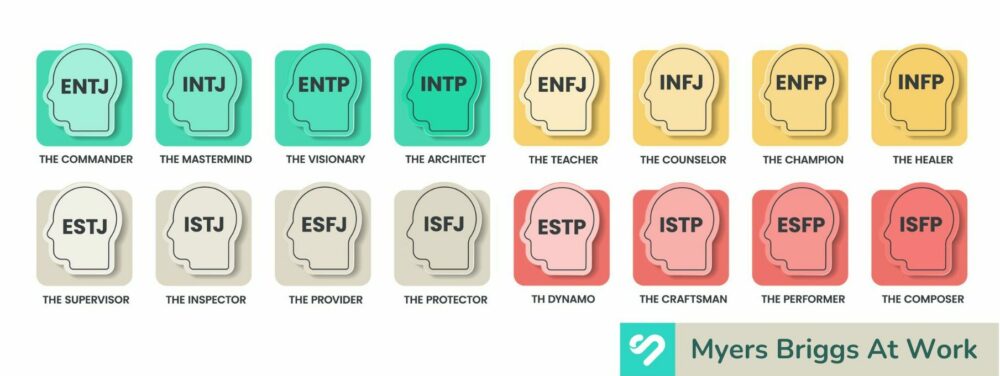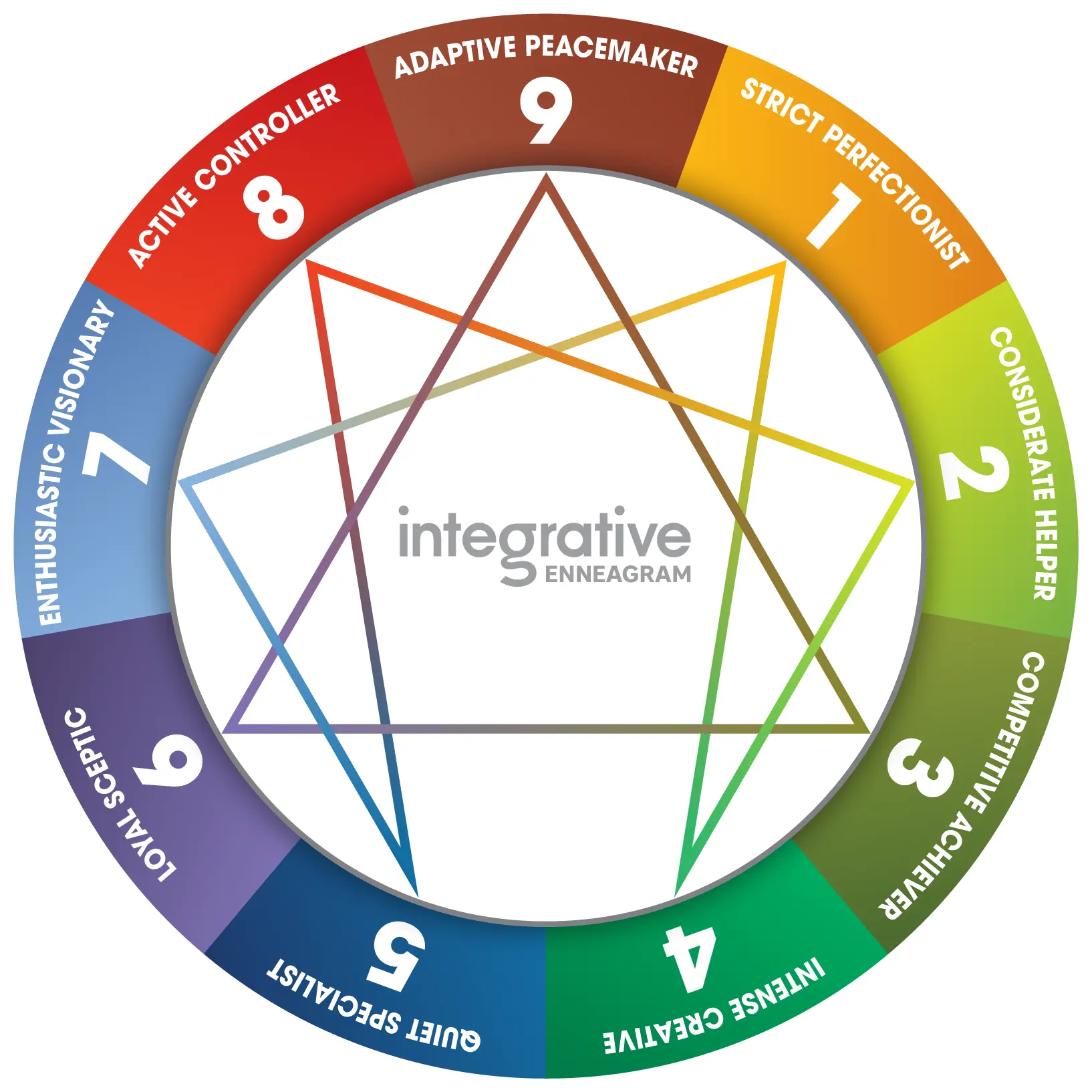Discover everything you need to know about Myers Briggs personality tests in our comprehensive guide. From understanding how these tests work to exploring where to find reliable free versions online, we cover it all. Learn about the benefits, accuracy comparisons, user feedback, and tips for interpreting your results effectively. Whether you’re new to personality assessments or seeking to delve deeper into your own type, our article provides valuable insights and resources to help you navigate the world of Myers Briggs testing.
Delve into this topic with poliviral.com for a comprehensive understanding.
1. Overview of the Myers Briggs Personality Test
The Myers Briggs Personality Test, based on Carl Jung’s theories, categorizes individuals into 16 personality types. It assesses preferences in four key dimensions: extraversion/introversion, sensing/intuition, thinking/feeling, and judging/perceiving. Each type is represented by a unique combination of these preferences, offering insights into how people perceive the world, make decisions, and interact with others. This widely-used tool aims to provide a framework for understanding behavior, career choices, and personal development.
Developed by Isabel Briggs Myers and Katharine Cook Briggs, the test has gained popularity for its applicability in various settings, from career counseling to team building. Understanding your Myers Briggs type can offer self-awareness and facilitate communication by highlighting individual strengths and potential blind spots. While critics argue about its scientific rigor and universal applicability, many find value in its ability to spark self-reflection and promote empathy.
The test is not definitive but serves as a starting point for self-discovery and personal growth. By recognizing different personality types and their implications, individuals can gain insights into their motivations, interpersonal dynamics, and areas for improvement. Whether used casually or professionally, the Myers Briggs test continues to influence how individuals perceive themselves and their interactions within society
2. Benefits of Taking the Myers Briggs Personality Test

Taking the Myers Briggs Personality Test offers several benefits. First and foremost, it provides individuals with a structured framework to understand their own behaviors and preferences. This self-awareness can be instrumental in personal development, helping individuals capitalize on their strengths and work on areas that may need improvement.
Secondly, the test can aid in career planning and development. By identifying personality traits that align with specific job roles or organizational cultures, individuals can make more informed career choices. It can also facilitate effective communication and teamwork by highlighting how different personality types approach tasks and interactions.
Furthermore, the Myers Briggs test promotes empathy and understanding in relationships. By recognizing and appreciating diverse personality types, individuals can navigate interpersonal dynamics more effectively, fostering better communication and collaboration.
Moreover, the test serves as a tool for personal growth and lifelong learning. It encourages individuals to explore different facets of their personality and consider how they can adapt and grow in various situations. Finally, the test can provide validation and reassurance by affirming that individual differences are normal and valuable, contributing to a more inclusive and supportive environment
3. How the Myers Briggs Test Works: A Brief Explanation

The Myers Briggs Test operates on the concept of psychological types proposed by Carl Jung. It assesses individuals across four dichotomous preferences:
Extraversion (E) vs. Introversion (I): Determines where individuals direct their energy and how they interact with the world. Extraverts are energized by external stimuli and enjoy social interaction, while introverts prefer quieter, more reflective environments.
Sensing (S) vs. Intuition (N): Reflects how individuals gather information. Sensors rely on tangible data and details, focusing on the present realities, while intuitives trust patterns, possibilities, and future potentials.
Thinking (T) vs. Feeling (F): Governs how individuals make decisions. Thinkers prioritize logic and objective criteria, while feelers prioritize values, emotions, and personal concerns.
Judging (J) vs. Perceiving (P): Determines how individuals orient themselves to the outside world. Judgers prefer structure, order, and planned approaches, while perceivers are flexible, spontaneous, and open to new experiences.
Each individual is classified based on their preference in each pair, resulting in a four-letter type indicator (e.g., ISTJ, ENFP). This type indicator represents a unique personality profile that offers insights into behavior, decision-making, and interpersonal interactions.
The test itself typically involves a series of questions or statements designed to elicit preferences in each category. Respondents choose which statement best reflects their typical behavior or attitude. After completion, the results are scored to determine the dominant preferences and generate a personality type description that individuals can use for self-reflection and personal development.
4. Top Websites Offering Free Myers Briggs Tests

Several reputable websites offer free Myers Briggs tests online, providing accessible resources for those interested in exploring their personality types. One popular option is 16Personalities, known for its comprehensive assessments and detailed personality profiles that delve into strengths, weaknesses, and career suitability based on your type. Truity offers a similar service with detailed descriptions and career recommendations tailored to your personality type. HumanMetrics provides a quick and straightforward test with immediate results, ideal for those looking for a rapid assessment. Personality Hacker offers a variety of tools and resources beyond just the test itself, focusing on personal growth and development strategies based on your type. These platforms offer free versions of the Myers Briggs test, making it convenient for individuals to gain insights into their personalities and explore how they can apply this knowledge to various aspects of their lives
5. Comparing the Accuracy of Free Myers Briggs Tests
When comparing the accuracy of free Myers Briggs tests available online, it’s important to consider several factors. First, the comprehensiveness and depth of the test questions play a crucial role. Tests like 16Personalities and Truity are known for their detailed assessments that cover multiple facets of personality, offering more nuanced insights into individual preferences.
Secondly, the validity of the test results depends on the reliability of the underlying psychological theory and the research behind it. Established tests often have a more robust foundation in psychological research, enhancing their accuracy.
Additionally, user feedback and reviews can provide valuable insights into the reliability of the tests. Platforms that regularly update their assessments based on user feedback tend to offer more accurate results over time.
Lastly, while free tests can give a general overview of personality types, they may not always capture the complexity of individual personalities. Paid versions or tests administered by trained professionals might offer more personalized insights and interpretations.
By considering these factors, individuals can make more informed decisions about which free Myers Briggs test best suits their needs for understanding their personality type.
6. User Reviews and Feedback on Free Myers Briggs Tests
User reviews and feedback on free Myers Briggs tests highlight varying experiences and perspectives. Platforms like 16Personalities often receive praise for their detailed and insightful personality profiles, which users find accurate and beneficial for self-reflection and career guidance. Many appreciate the accessibility and user-friendly interfaces of Truity and HumanMetrics, noting the convenience of quick results and clear explanations of personality types.
However, some users express concerns about the reliability and consistency of free online tests. Criticisms often focus on the tests’ simplicity compared to more in-depth assessments administered by professionals. Additionally, there are occasional doubts about the scientific validity and universal applicability of Myers Briggs personality types, which can influence user perceptions of the test’s accuracy.
Overall, user reviews provide valuable insights into the strengths and limitations of free Myers Briggs tests, helping potential test-takers make informed decisions based on others’ experiences.
7. How to Interpret Your Myers Briggs Results
Interpreting your Myers Briggs results involves understanding the four-letter type indicator and what each letter signifies about your personality preferences. Start by reading the detailed description provided by the test, which typically outlines your strengths, weaknesses, communication styles, and potential career paths associated with your type.
Next, consider each preference pair (e.g., E vs. I, S vs. N, T vs. F, J vs. P) individually to understand where you fall on the spectrum. Reflect on how these preferences influence your behavior, decision-making, and interactions with others.
It’s essential to recognize that Myers Briggs types are not definitive labels but frameworks for understanding personality. Embrace the insights provided by your type while remaining open to exploring nuances and exceptions in your own behavior.
Lastly, use your results as a starting point for personal growth and development. Consider how you can leverage your strengths and work on areas for improvement to enhance your personal and professional life based on your Myers Briggs type.
8. Additional Resources for Understanding Your Myers Briggs Type
For those interested in delving deeper into their Myers Briggs type, several resources can provide valuable insights and further exploration:
Books and Publications: Look for books written by experts in personality psychology or those specifically focused on Myers Briggs theory. Authors like Isabel Briggs Myers and David Keirsey offer detailed explanations and applications of personality types.
Online Forums and Communities: Engage with online forums and communities dedicated to Myers Briggs enthusiasts. These platforms allow you to discuss your type with others, share experiences, and learn from different perspectives.
Professional Workshops and Seminars: Consider attending workshops or seminars conducted by certified Myers Briggs practitioners. These sessions often provide in-depth analyses of personality types and personalized guidance on applying insights to your life.
Career Counseling Services: Seek out career counselors who specialize in using Myers Briggs assessments. They can offer personalized advice on career choices, workplace dynamics, and professional development based on your type.
Psychological Assessments: If possible, opt for formal psychological assessments administered by trained professionals. These assessments typically provide more accurate and nuanced interpretations of your personality type and its implications.
These resources can enhance your understanding of your Myers Briggs type and help you apply this knowledge effectively in various aspects of your life.
In conclusion, exploring your Myers Briggs personality type through free online tests offers valuable insights into your behavior, decision-making, and relationships. While these tests provide a framework for self-awareness and personal growth, it’s essential to approach results with openness and curiosity. Use the knowledge gained to enhance communication, navigate career choices, and foster understanding in both personal and professional settings.
poliviral.com
poliviral.com

